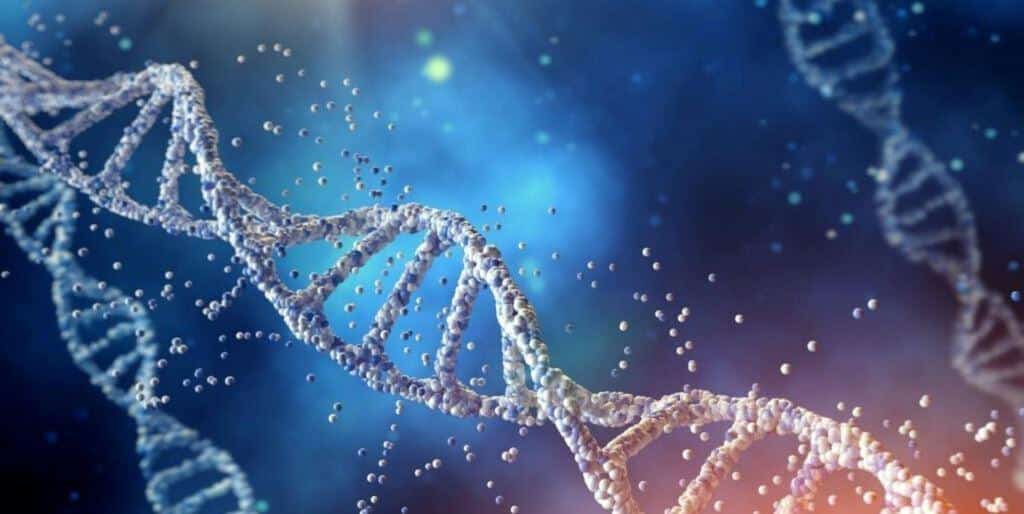Good habits or genes - what determines a beautiful and healthy smile? Some people have naturally white teeth, while others, even after whitening, are unable to achieve this effect or are already at risk of periodontitis after the age of 30. Shape, colour, greater predisposition to disease - find out how genes affect teeth.
Mummy's teeth
There is a belief among some people that if they have dental problems then their children are bound to have them too. And this is partly true.
Let's start at the beginning, i.e. with the first teeth. It is common to see missing permanent teeth in family members, grandparents, parents and children. This problem most often affects the eights, but it can also happen that permanent front teeth do not appear. In such a situation, millipedes remain in these areas for some time, even in an adult. However, one has to reckon with the fact that implants may be a necessity in the future.
You can read more about them in our article " Implants - everything you need to know".
However, there is a second theory that the absence of the permanent teeth - the eighths - is linked to evolution. Nowadays, more food does not require thorough grinding, thus these teeth are not necessary. And according to the theory of evolution, an organ that is not used atrophies. However, in this case, doctors' opinions are divided.
Certainly genes influence teeth when it comes to their shapeand this, in turn, is of great importance when it comes to resistance to disease and external factors. People with triangular and elongated teeth are more likely to have weaker teeth and may also develop gingival atrophy. In the case of rectangular teeth, the resistance to periodontitis is greater.
We wrote more about this in our article Crooked teeth - causes and how to get rid of an embarrassing smile.

How else do genes affect teeth?
Susceptibility to disease is also written into the genes.
There is a lot of talk about tooth decay, or rather susceptibility to the disease. However, in this case it is not genes that affect the teeth, but bad habits passed on from parents to children. Inadequate and sometimes even no oral hygiene, too many sweets or a poor diet.
If you want to take care of your little one's healthy teeth be sure to read our articles "How to care for baby teeth and why it's so important" and "Anti caries diet for children". And if your first tooth appears - make an appointment for an adaptation visit. Find out more about it in the material "Your child's first visit to the dentist in the UK".
Coming back to the topic, it is different in the case of periodontitis. Here, unequivocally, the genes affect the teeth, or rather the risk of losing them. If there are people in your family, parents, grandparents, who struggle with this disease, the likelihood of you developing it increases. Importantly, the first symptoms of periodontitis can appear even before the age of 35.
Bleeding or swollen gums are the most common. If you are struggling with this problem - do not underestimate it and make an appointment with your dentist as soon as possible. And you can read more about the disease itself and its treatment in our article "Modern periodontitis treatment in the UK with Vector Paro Pro".

Unobtainable white
Genes influence teeth, including when it comes to their colour. They are responsible for the shade of the enamel and dentin. Thus, a darker tooth colour is not always a sign of poor oral hygiene. If you are interested in this topic, we recommend our material - "What does tooth colour depend on"..
Genes not only influence the shade of teeth but also their discolouration. This is associated with hereditary underdevelopment of the enamel. This can result in your teeth having yellow or white spots.
It happens that some genetic diseases do not directly affect the teeth, but affect them anyway. For example, people with a family history of kidney stones are more prone to dental deposits.

Good habits versus genes
Genes affect teeth, but this cannot be an explanation for poor dental health.
The fact that your teeth are similar to your parents' teeth does not mean that there is nothing you can do about them. The biggest influence on healthy teeth is daily hygiene. Importantly, this is not just about brushing, but also flossing, which is often overlooked.
Also remember to visit your dentist regularly. Firstly, during hygienization, the dentist removes accumulated plaque and tartar, which prevents, among other things, the appearance of caries or periodontitis. You can read more about this procedure in our article "Dental hygiene in the UK - scaling, tooth sandblasting, polishing and fluoridation".
Secondly, it is an excellent opportunity for the doctor to check the condition of your teeth. If there are any cavities, the dentist will prepare a treatment plan and start treatment at an early stage. This will not only save you time, but also money.
You can read more about what a treatment plan is in the material "A dental treatment plan, i.e. a cost estimate for your teeth". Remember also that you can spread the whole cost in instalments, but more about that here -. "Teeth on credit, i.e. dental treatment on instalments".". Importantly, our instalment system is 100% secure and regulated by the Financial Conduct Authority (FCA number 619628).
And finally, remember that although genes affect your teeth, it doesn't mean that you can't enjoy a beautiful and healthy smile.
As always, if you have any questions you are welcome to contact.

